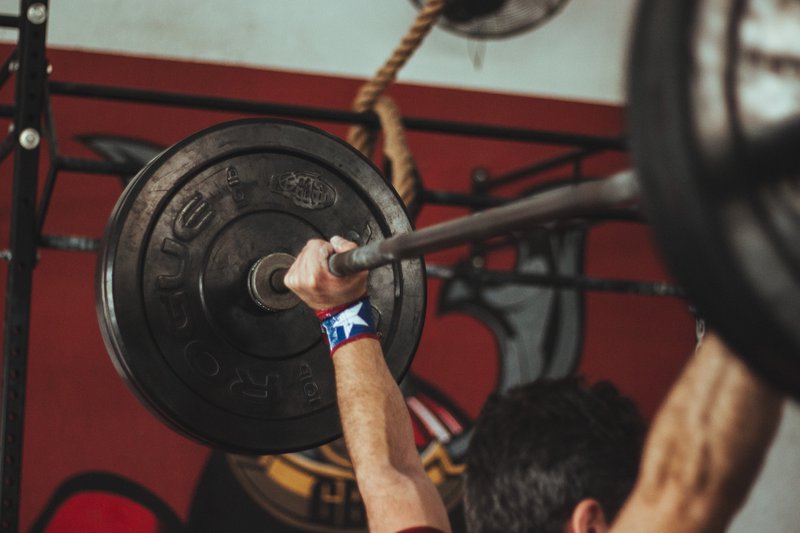In the fast-paced digital landscape of today, having a robust online presence is crucial for the success of any business, including gyms and fitness centers. At the heart of SEO lies keyword research – the process of identifying the words and phrases potential customers use when searching for businesses like yours. In this comprehensive guide, we’ll delve into the intricacies of selecting the right keywords research for your seo for gym business strategy, helping you unlock the full potential of your online presence.
Table of Contents
- Conducting Keyword Research: A Step-by-Step Guide
- Implementing Keywords into Your Gym Business SEO Strategy
- Frequently Asked Questions
- What are long-tail keywords, and why are they important for gym SEO?
- How do I determine the competitiveness of keywords for my gym business?
- Should I focus on local keywords for my gym’s SEO strategy?
- How often should I update my keyword strategy for gym SEO?
- What role does user intent play in keyword selection for gym SEO?
- Conclusion
Conducting Keyword Research: A Step-by-Step Guide
Brainstorm Seed Keywords: Seed keywords are the foundation of your keyword research. These are broad terms related to your gym business, such as “gym membership,” “fitness center,” or “personal training.” Brainstorm a list of seed keywords that are relevant to your offerings.
Utilize Keyword Research Tools: Take advantage of keyword research tools like Google Keyword Planner, SEMrush, or Ahrefs. These tools provide valuable insights into keyword search volume, competition, and related keywords. Enter your seed keywords into these tools to generate a list of potential keywords.
Evaluate Keyword Relevance and Search Volume: Not all keywords are created equal. Evaluate the of each keyword to your gym business and its offerings. Additionally, consider the search volume – the number of times a keyword is searched for within a specific timeframe. Focus on high-relevance keywords with moderate to high search volume.
Analyze Keyword Competition: Assess the competitiveness of your chosen keywords. High-competition keywords may be challenging to rank for, especially for new or smaller gym businesses. Look for a balance between relevance, search volume, and competition.

Long-Tail Keywords and Local SEO: Incorporate long-tail keywords – longer, more specific phrases – into your keyword strategy. Long-tail keywords often have lower competition and higher conversion rates.
Refine and Expand Your Keyword List: Continuously refine and expand your keyword list based on performance metrics and changes in consumer behavior. Monitor keyword rankings, organic traffic, and conversion rates to identify opportunities for optimization.
Implementing Keywords into Your Gym Business SEO Strategy
Once you’ve selected the right keywords for your gym business, it’s time to implement them strategically across your website and online content. Here are some key areas to focus on:
On-Page Optimization: Incorporate your target keywords into key elements of your website, including meta titles, meta descriptions, headers, and body content. Ensure that your content reads naturally and provides value to users.
Content Creation: Develop high-quality, engaging content that incorporates your target keywords. This could include blog posts, articles, workout guides, or instructional videos. Create content that addresses the needs and interests of your target audience while integrating relevant keywords.
Local Listings and Directories: Optimize your gym’s presence on local listings and directories like Google My Business, Yelp, and Yellow Pages. Ensure that your business name, address, and phone number (NAP) are consistent across all platforms and include relevant keywords in your business descriptions.
Backlink Building: Build quality backlinks from reputable websites within the fitness and health industry. Backlinks not only drive traffic to your site but also signal to search engines that your content is trustworthy and authoritative.
Mobile Optimization: With an increasing number of users accessing the internet via mobile devices, it’s essential to optimize your website for mobile responsiveness. Ensure that your website loads quickly and displays properly on smartphones and tablets.
Monitor and Adjust: Regularly monitor the performance of your keywords and SEO efforts using analytics tools like Google Analytics and Google Search Console. Track changes in keyword rankings, organic traffic, and user engagement metrics. Adjust your SEO strategy accordingly to maximize results.
Frequently Asked Questions
What are long-tail keywords, and why are they important for gym SEO?
Long-tail keywords are longer, more specific phrases that users type into search engines. Incorporating long-tail keywords diversifies your SEO strategy and enhances your chances of reaching potential customers with specific needs or preferences.
How do I determine the competitiveness of keywords for my gym business?
Assessing keyword competitiveness involves analyzing factors such as search volume, competition from other businesses, and your own website’s authority. Additionally, manually analyzing search engine results pages (SERPs) can give you an idea of the competition level for specific keywords within your niche.
Should I focus on local keywords for my gym’s SEO strategy?
Yes, Leveraging local seo service tactics like optimizing Google My Business listings, obtaining local citations, and targeting location-specific content can significantly improve your gym’s visibility in local search results and drive foot traffic to your facility.
How often should I update my keyword strategy for gym SEO?
Regularly updating your keyword strategy is essential to stay competitive in the ever-evolving landscape of search engine algorithms and consumer behavior. Additionally, monitor the performance of your keywords using analytics tools and adjust your strategy accordingly to maximize results.
What role does user intent play in keyword selection for gym SEO?
User intent refers to the underlying purpose or motivation behind a user’s search query. Understanding user intent is critical for selecting keywords that align with the needs and expectations of your target audience. Tailor your keyword strategy to accommodate different user intents, providing relevant content and solutions to fulfil their needs effectively.

Conclusion
Selecting the right keywords for your gym business SEO is a critical step towards improving your online visibility, driving organic traffic, and attracting potential customers. By understanding your target audience, conducting thorough keyword research, and strategically implementing keywords across your website and online content, you can position your gym for success in the competitive digital landscape. Remember to continually refine and adapt your keyword strategy based on performance metrics and changes in consumer behavior. With dedication and strategic planning, your gym business can rise to the top of search engine rankings, unlocking new opportunities for growth and success.



